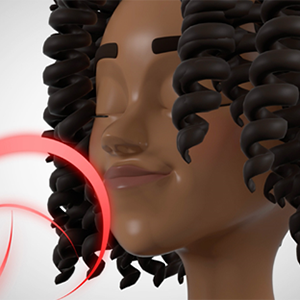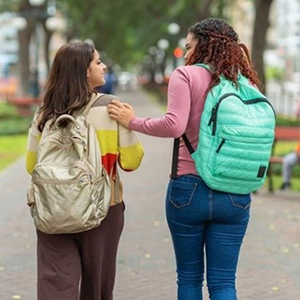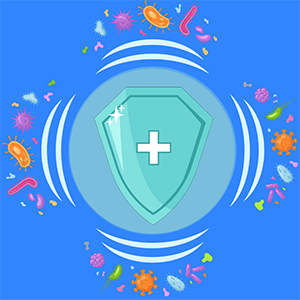
Biomedical Beat Educator's Corner: Immunology Miniseries
This Biomedical Beat miniseries explores the immune system, which protects the body from microbes that could cause infection. Students learn about different areas of immunology by reading the blog posts and discussing, applying, and quizzing what they learn through the activities outlined in the Educator’s Corner.
Grades: High school
Produced by: National Institute of General Medical Sciences
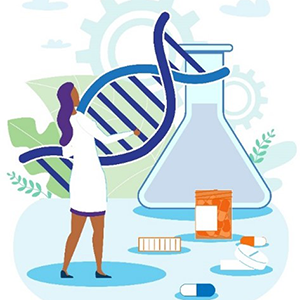
Biomedical Beat Educator's Corner: Pharmacology Miniseries
This Biomedical Beat miniseries looks at the important field of pharmacology: a research-based science and the study of how molecules, such as medicines, interact with the body. Students learn about different areas of the field by reading the blog posts and discussing, applying, and quizzing what they learn through the activities outlined in the Educator’s Corner.
Grades: High school
Produced by: National Institute of General Medical Sciences

Biomedical Beat Educator’s Corner
With this free resource, educators can build on existing NIH STEM content through the integration of supplemental material in Biomedical Beat blog posts. The Educator’s Corner is intended to give teachers additional tools to use in lesson plans.
Grades: Middle and high school
Produced by: National Institute of General Medical Sciences
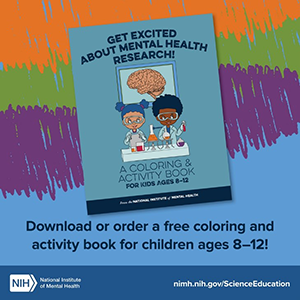
Get Excited About Mental Health Research! Coloring and Activity Book
This printable coloring and activity book for children ages 8 through 12 provides information about types of mental health research, the process for conducting research, and paths to becoming a mental health researcher.
Grades: 3-7
Produced by: National Institute of Mental Health
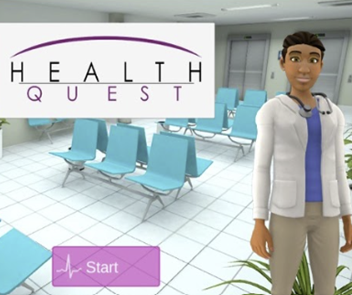
Health Quest
Health Quest focuses on engaging student interest in health science careers. Middle school students learn about various career paths through career videos and role model interviews from biomedical, behavioral, and clinical research health professionals. The program also includes a narrative-driven health sciences adventure game, where students choose a science field and then embark on a mission to help solve a scientific problem or answer a critical research question. Teachers can request the tools and resources needed to implement Health Quest in their classrooms.
Grades: Middle school
Produced by: North Carolina State University and University of California San Francisco (SEPA funded)
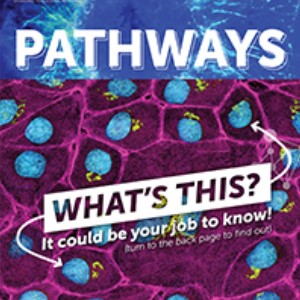
Pathways: Basic Science Careers
The basic science careers unit of Pathways teaches students about basic science, its contribution to people’s health, and the interesting careers that students could pursue. Pathways provides a collection of free educational resources about basic biomedical science and research careers. Be sure to check out the corresponding videos.
Grades: Middle and high school
Produced by: National Institute of General Medical Sciences and Scholastic, Inc.
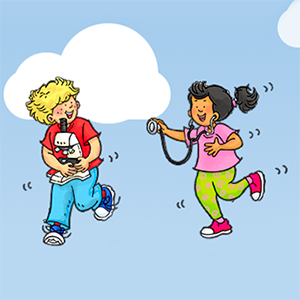
The League of VetaHumanz SuperPower Shop
The League of VetaHumanz SuperPower Shop teaches students about how veterinarians keep people and animals healthy. The Be a Veterinary Medicine SuperHero! series contains 54 short video lessons. The This Is How We "Role" page includes a children’s e-book series in English and Spanish. It also offers an online game that explores how doctors and scientists use their superpowers to prevent and treat accidents, diseases, and other health challenges that people and their animals face. (This activity is free but requires users to set up an account.)
Grades: K-4
Produced by: Purdue University College of Veterinary Medicine (SEPA funded)
